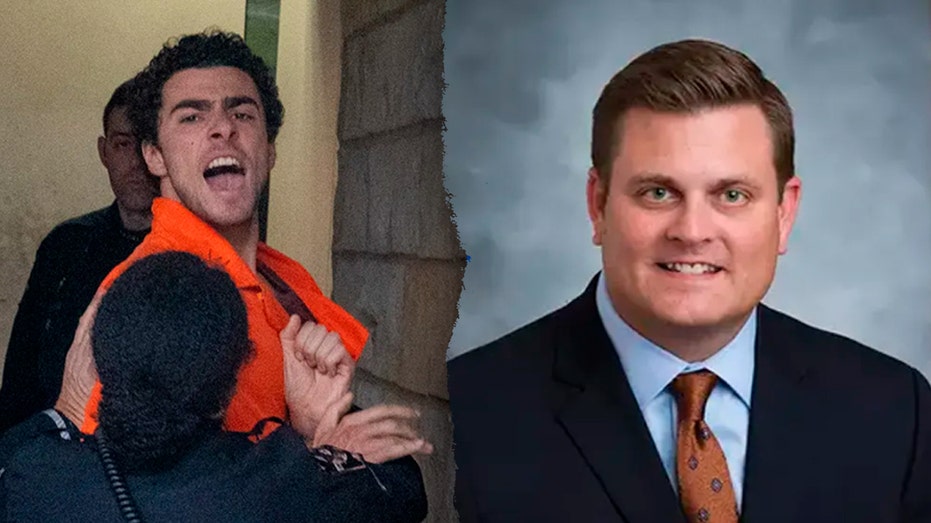The Great Escape: How Ukraine’s ninth-richest man slipped out of the country amid fraud allegations
Ukraine’s ninth-wealthiest man Hennadiy Boholiubov flees the country on a train using another man's passport. Although he has legal reasons to leave Ukraine due to his age, he allegedly escapes charges of embezzlement and fraud of billions of dollars.
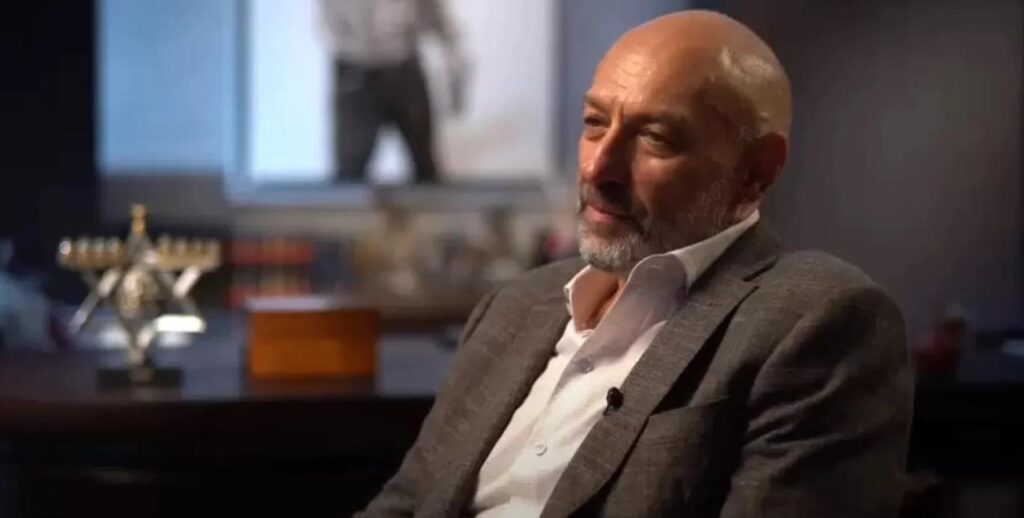

When a Ukrainian billionaire leaves the country on a public train and not on his usual luxury car (civilian planes don’t fly in Ukraine now), the first suspicions may arise. The case of Hennadiy Boholiubov, the 9th richest person in Ukraine by Forbes, reveals that his train ride was the least strange detail of his fraudulent scheme of fleeing the country to avoid potential criminal charges against him.
Boholiubov’s escape over the border via train
As a former co-owner of PrivatBank, now the largest state-owned bank in Ukraine, he was a key figure in one of the “loudest financial scandals of the 21st century,” embezzling over $5.5 billion through fraudulent loans and money laundering via PrivatBank.
This came to light as Privatbankbank was nationalized in 2016 and the Ukrainian government had to cover for the misappropriated money. The scheme primarily revolved around issuing fraudulent loans to shell companies controlled by Hennadiy Boholiubov ((other spellings: Gennadiy Bogolyubov/Boholyubov) and his partner Ihor Kolomoiskyi, which were then funneled through PrivatBank’s Cyprus branch and various offshore entities. This created a complex web of transactions designed to obscure the true nature of the funds and make it appear that loans were being repaid.
Boholiubov avoided formal charges or suspicion notices, as opposed to Kolomoiskyi, who is now detained in Ukraine for several criminal proceedings, including fraud and embezzlement of PrivatBank funds.
This makes journalists of Ukrainska Pravda, Ukraine’s leading newspaper, assume that the Ukrainian state still had something against him, as border guards were instructed not to let him out of the country. Ukraine’s ninth-richest man was slyer: abetted by a border guard, he crossed to Poland on a train on 24 June using the lost passport of a 67-year-old man.
Ukrainska Pravda found the man and he confirmed losing his passport and not leaving Ukraine on that date.
The plot twist gets complicated, as the 62-year-old Boholiubov had all the legal reasons to leave Ukraine during martial law. Not only is he over 60, the age cutoff for military service, but he also fathers five underage children – another criterion that should allow him free passage.
However, according to Ukrainska Pravda’s sources in law enforcement and business, his name was flagged as requiring approval from the border service management for him to leave the country, as he was possibly going to face charges from the Bureau of Economic Safety.
ZN.UA sources claimed that earlier this year, he already planned to depart to Austria with a diplomatic passport, as his wife was appointed a permanent representative to international organizations in Vienna. However, the relocation did not happen: according to ZN, Boholiubov was denied a diplomatic passport, which grants immunity to its owner, upon instructions from the President’s Office.
After this “escape scandal” spread in Ukrainian media, Boholiubov’s wife Emine Dzhaparova, who allegedly accompanied him in the last сompartment of train car #13 on the Kyiv-Chełm train on 24 June, resigned from the freshly-assigned position, considering that she was one of the top Ukrainian diplomats serving as First Deputy Minister of Foreign Affairs for four years.
While Boholiubov managed to flee, the border guard who aided him was detained by the State Bureau of Investigation (DBR) with a possibility to pay a bail of $612,226 (UAH 25 million). He faces up to seven years in prison. The DBR also issued a notice of suspicion to the oligarch for an unlawful border crossing and possible passport forgery, but he still walks freely abroad and might even seek political asylum in the United Kingdom, according to sources of ZN.UA.
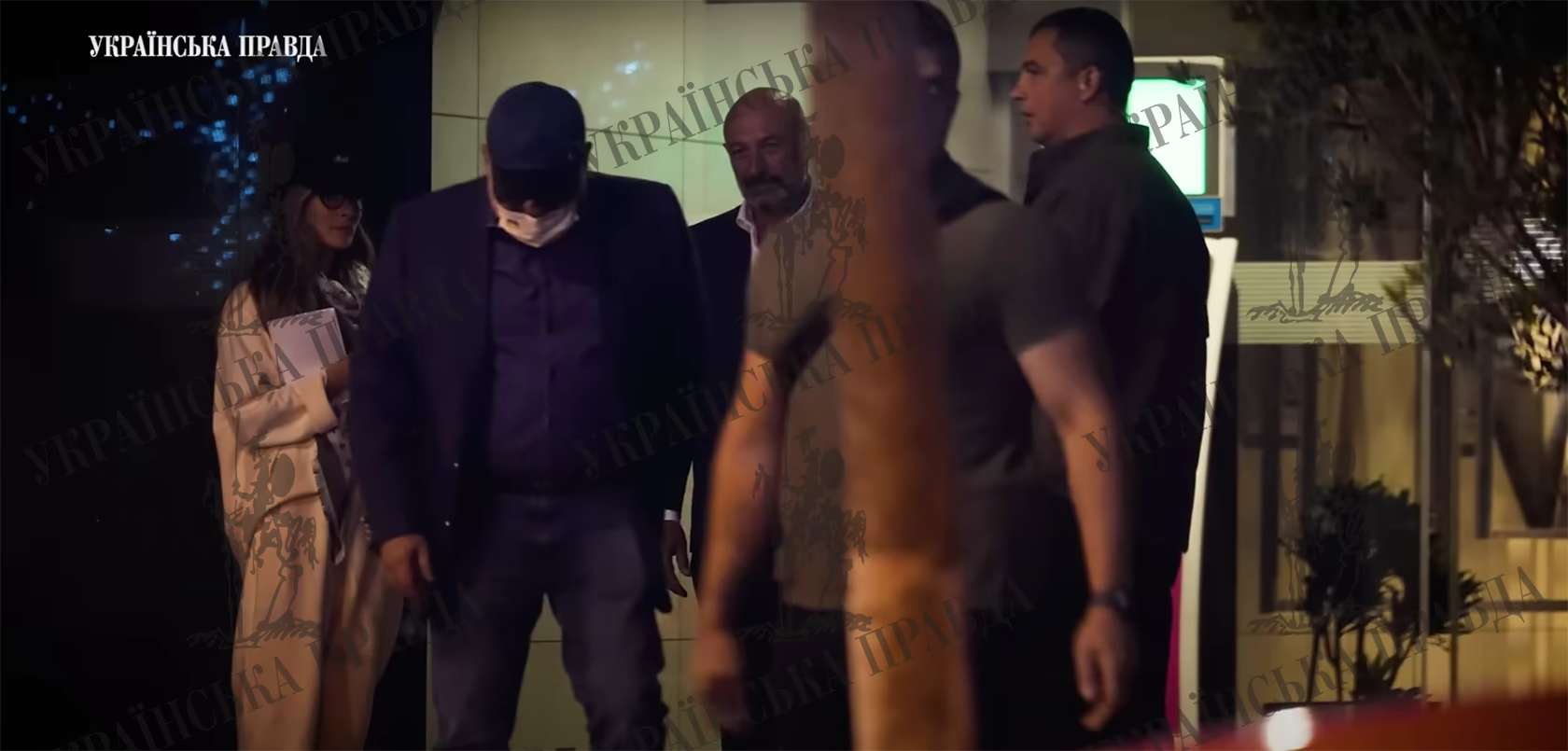
Boholiubov under FBI investigation for “Optima scheme”
The concept of political asylum in this case carries a tinge of irony. Both Boholiubov and Kolomoiskyi are not only wanted by Ukrainian law enforcement, but they’ve also been under investigation by the American FBI since 2019. The FBI probe concerns allegations that the pair laundered $470 billion over a ten-year period through accounts at PrivatBank.
The publication ZN.UA provided a detailed account of numerous legal proceedings against the owners of the Privat group in the United States. According to the lawsuit documents, fraud at PrivatBank, then controlled by Kolomoiskyi and Boholiubov, operated as follows: the bank attracted funds in the form of loans for controlled Ukrainian enterprises. However, depositors’ funds were not used for these enterprises’ needs but were instead utilized by the bank’s owners to acquire commercial real estate, ferroalloy, and steel plants in the United States.
Funds were accumulated in accounts of various American companies, with the word “Optima” featuring prominently in the firms’ names. Transactions for purchasing American commercial assets were conducted through numerous Optima entities. The complexity and number of accounts involved led to the assumption that a special algorithm was created to implement the scheme, through which approximately $470 billion was processed over ten years.
Not all money from PrivatBank was irretrievably withdrawn; some was returned to create the appearance of servicing these loans, which also provided the former owners with the opportunity to obtain new “loans” for controlled enterprises in Ukraine. This allowed the scheme to exist for a considerable time.
In Ukraine, authorities eventually realized that PrivatBank’s capital consisted of promissory notes rather than genuine collateral. Similarly, in the US, investigators uncovered that the funds used by Optima companies for asset acquisitions were of questionable origin.
Reportedly, it was the proceedings in the USA that compelled Kolomoisky and Boholyubov to remain in Ukraine for an extended period.
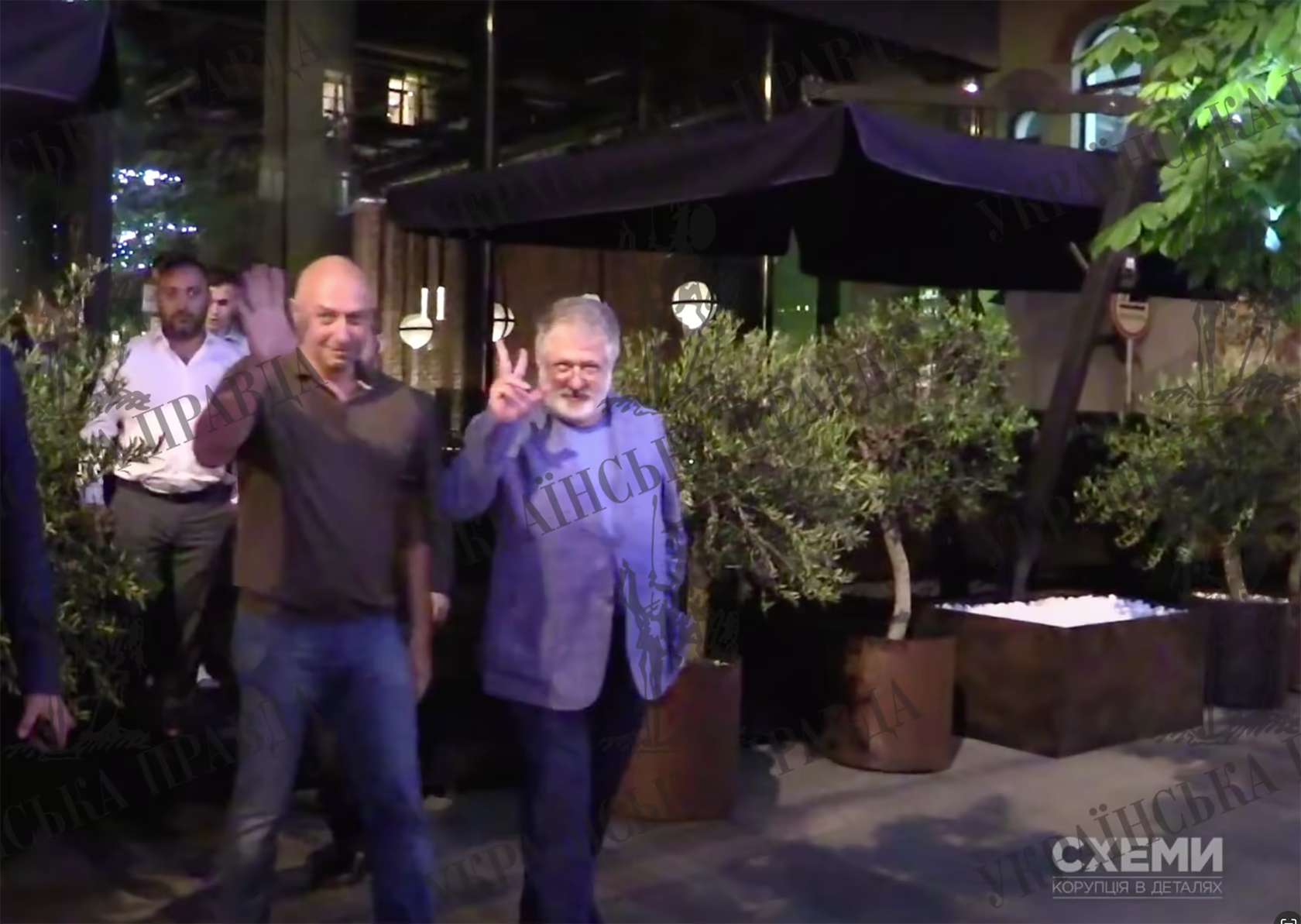
In addition, in 2017, the High Court of England issued an order for the worldwide seizure of their assets, as well as six companies believed to be owned or controlled by them, on the charge of withdrawing almost $2 billion from the bank through a series of illegal transactions. They transferred the funds to companies that they secretly owned or were under their control.
“Waiting it out” in Ukraine
The oligarchs fled to Ukraine in 2019, facing potential charges in the United States, as the publication Ukrainska Pravda states, to “wait out” a period of uncertainty. The timing was chosen to coincide with the day sitting President Volodymyr Zelenskyy won the election with Petro Poroshenko, under whom Privatbank was privatized. For several years, the business partners lived in Geneva and, later, Israel.
They chose Ukraine because the country has a policy of not extraditing its own citizens. Interestingly, Boholuiubov had previously given up his Ukrainian citizenship. Fearing extradition, he had to go through the process of regaining it.
In an interview with Ukrainska Pravda, he admitted to having thoughts about a potential arrest at the US request, but in 2022, he realized “these concerns were unfounded.”
The billionaire also denied all allegations of leaving Ukraine illegally with a passport belonging to another man and claimed not to know any border guards, justifying his departure with a visit to a sick elderly mother who lives in London.
Boholiubov claims that he used his own passport to cross the border – and Ukrainian law enforcers confirmed that the oligarch showed it to Polish border guards. However, it was not used to cross the Ukrainian border, Ukrainska Pravda wrote, having gained access to a border crossing database.
After returning to Ukraine in 2019, Boholiubov stayed in Ukraine, and started crossing the border only in 2022, to visit the office of Privatbank in Geneva, Ukrainska Pravda’s business sources told the media. Shortly thereafter, the National Anticorruption Bureau paid a visit to the oligarch.
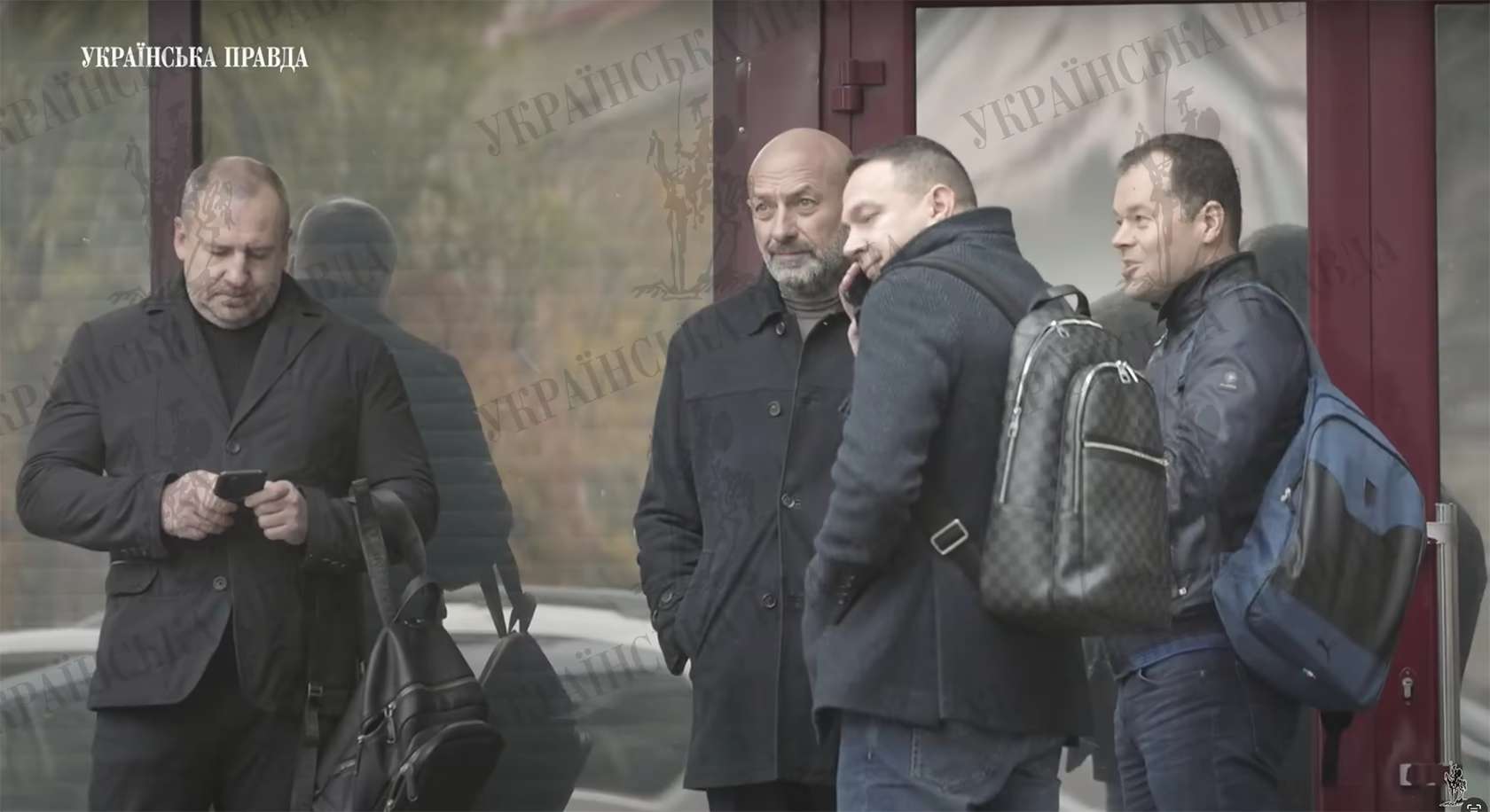
Afterward, he faced great difficulties in leaving Ukraine and was able to do so only in July 2023, after an unsuccessful February 2023 attempt when his passport was annulled at the border under suspicion of document forgery, Ukrainska Pravda’s business sources stated. Boholiubov confirmed the failed border crossing to the media, but denied knowledge of that the reasons for the document’s cancellation are unknown to him.
The July 2023 trip, which the oligarch spent on his yacht near the Greek island of Corfu, and in visits to London and Cyprus, was made possible only thanks to the involvment of his many connections, including his diplomatic wife Emine Dzhaparova, Ukrainska Pravda’s sources in law enforcement told the media.
The situation is complicated: Ukraine has not pressed any formal charges nor until the border crossing scandal iissued notices of suspicion against Boholiubov, unlike his business partner Kolomoiskyi.
“But the same law enforcement agencies feared that if the state of Ukraine finally gets such suspicions, Boholiubov himself might no longer be in Ukraine. Therefore, the decision not to release the oligarch was rather political and was definitely made at the highest level,” investigative journalist Mykhailo Tkach of Ukrainska Pravda writes.
Possible allegations against Boholiubov
The Bureau of Economic Security (BEB) has not commented about any suspicions being prepared against Boholiubov. However, the Ukrainian media Business Censor has analyzed the cases against his business partner Ihor Kolomoiskyi and made an assumption.
Boholiubov’s partner in the Privat group Kolomoiskyi has been in pre-trial detention since September last year on several criminal proceedings, including one under BEB investigation.
The first case against Kolomoiskiy, which is under BEB jurisdiction for unclear reasons, concerns bank loans for which Kolomoisky was personally a guarantor. For instance, in 2013, “Naftokhimik Prykarpattia,” 26% state-owned, took loans from PrivatBank for UAH 648 mn ($78 mn). Kolomoiskyi allegedly fictitiously deposited UAH 5.87 bn ($707 mn) into his PrivatBank account, with part of the funds transferred to “Naftokhimik Prykarpattia” accounts. This allowed the company to repay its debt but become indebted to Kolomoiskyi instead.
While Boholiubov has not been formally charged, the investigation into Kolomoiskyi’s case mentions an “organized group” involved in document forgery and misappropriation of property. Theoretically, Hennadiy Boholiubov, as Kolomoiskyi’s main partner and former co-owner of PrivatBank, could potentially be implicated in this group.
Multiple allegations against the oligarch and his partner Ihor Kolomoiskyi, both in Ukraine and other countries, prove that Boholiubov is not as innocent as he tries to present himself. His case reminds of the need to tackle corruption and the influence of oligarchs in Ukraine, striving for more transparency and accountability in the banking, law, and border management spheres.
Related:
- Nationalization of PrivatBank, Ukraine’s largest bank, explained
- Why Ukrainian oligarchs are not only Ukraine’s problem, but the West’s too
- Why Ukrainian oligarchs are not only Ukraine’s problem, but the West’s too

